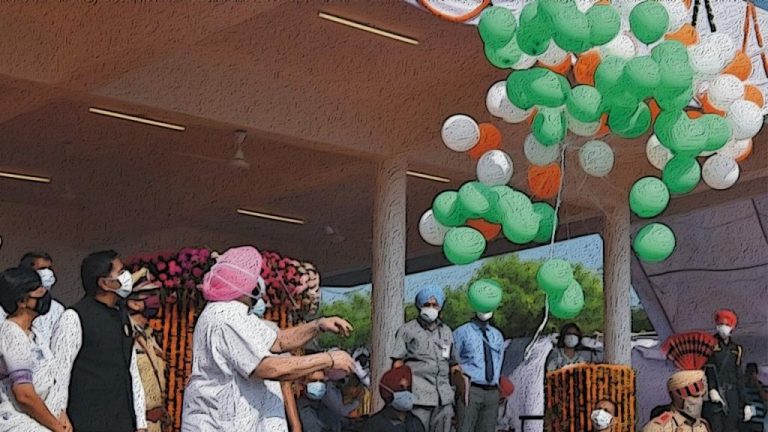

In April, when Captain Amarinder Singh formed an Expert Panel to look at Punjab’s recovery post-COVID-19, these very pages questioned the wisdom of the government. Not because Punjab does not need help to restructure its economy through a vital push towards revitalisation.
In fact, Punjab needs those urgently. This push has been missing for the last few decades. We questioned the credentials of the members of the expert panel not because they were not qualified. In fact, each of them is an eminent leader in their own fields though beholden to International Monetary Fund and World Bank which push neo-liberal policies .
The critique was these august members do not know Punjab enough. The critique was the need for a expert panel that is representative of local experts and local solutions. Sadly, that is what has proven correct when the expert panel has handed in its report.
In the meantime, on August 15, Captain Amarinder Singh, who had fought the last election in 2017 with the declaration that it was his last election, vowed once again to continue in office until Punjab revives economically. The vow was similar to the oath he had taken before the elections to rid farmers of loans, break the drug mafia’s back, provide employment to the 40 lakh youth. Those promises are still hanging fire.
What belies understanding is do these politicians really believe that people have no memory? What amuses is how the Captain made this vow without even reading the summary of the expert panel report. For if he had read it, he would have known that the report does not help.
The expert’s report is a rehash of the same electricity subsidy, diversification of crops, invitation to industry rhetoric the people of Punjab have been hearing for decades with no concrete steps on the ground. This is basically Punjab leadership’s foot in mouth syndrome. No wonder then Captain has now rejected the report.
Two of the above three suggestions are related – electricity. Yes, the report does say that electricity subsidy is a political compulsion but must be revised at least for big farmers. Electricity charges then can be rationalised and used to invite industry.
However, to really understand Punjab’s terrain, it is important to understand since when has electricity become a major issue. Is it since the mid-1990s when the subsidy was given or is the issue historical?
On 12 March 1984, when the state was already under President’s Rule over deteriorating law and order, on Bhartiya Kisan Union’s call for reduction in electricity rates, thousands of farmers reached and occupied the posh northern sectors of Chandigarh. Conservative estimates put the number of farmers at twenty thousand but unofficial estimates place them at one lakh. It was a symbolic gesture: rural India had occupied urban and modern India. For a week, the protest remained absolutely peaceful.
On 18 March 1984, the BKU organised a huge rally in Chandigarh addressed by farmer leaders from Andhra Pradesh, Maharashtra, Madhya Pradesh, Uttar Pradesh, Haryana, and Gujarat joined in. The gherao was a resounding success. Negotiations between farmers and the governor’s administration led to promise of no extra charge in electricity rates for tube wells and postponed the recovery of electricity bills along with a reduction in reconnection charges.
The farmers ended their strike, but not their struggle. The farmer unions and the presidential government decided to form a committee under a leading agrarian economist to look into the electricity tariff structure, the principles behind determining the tariff, and the level of service charges to be recovered from farmers. The date fixed for the report was 31 May 1984.
On 4 May 1984, the BKU met up with the state committee and asked for an assurance that along with the report they would also get the data on the basis of which the cost of power, staff cost and inventory of the Panjab State Electricity Board. The committee submitted its report on 31 May 1984. The central government did not make the report public.
Soon after, Operation Blue Star took place. We know the history. When political process started in the 1990s, the electricity subsidy was introduced. The thought must be: na rahega baans, na bajegi bansuri – eliminate the root of the conflict, get rid of electricity as a point of contention. We see now how it has led to an environmental disaster.
The expert committee would have been well served to remember the context of the electricity issue and not merely term it ‘political’. The recommendation should have been to draw a cut-off point in terms of units used to make big farmers give up the subsidy. We all know who are the big farmers – most of them are also political leaders, including Captain and the previous incumbent, the Badals.
As far as diversification of crops goes. This proposal has been on the table since the mid-1980s. In fact, it is even part of the salaciously defamed Anandpur Sahib Resolution. Yet, the reason there has been no action for decades is because the Minimum Support Price is available only for wheat and paddy, not even for corn. Unless the state incentivises different crops, the farmers will remain addicted to paddy because it is the one crop that gives them some assured income.
The report does not even acknowledge or respond to the three recent Ordinances in agriculture introduced by the BJP government which push for further privatization of the sector. This is the issue with the report – its disconnect from the ground reality of Punjab.
The incumbent government has only 1.5 years left in office. It is true that Punjab still does not have a viable opposition. However, if Captain wants to etch his name in history, he will have to go local and not depend on external experts. Each day that passes results in loss of precious time.
Also Read: Is Montek heading a group made up of arm-chair theorists?

Disclaimer : PunjabTodayTV.com and other platforms of the Punjab Today group strive to include views and opinions from across the entire spectrum, but by no means do we agree with everything we publish. Our efforts and editorial choices consistently underscore our authors’ right to the freedom of speech. However, it should be clear to all readers that individual authors are responsible for the information, ideas or opinions in their articles, and very often, these do not reflect the views of PunjabTodayTV.com or other platforms of the group. Punjab Today does not assume any responsibility or liability for the views of authors whose work appears here.
Punjab Today believes in serious, engaging, narrative journalism at a time when mainstream media houses seem to have given up on long-form writing and news television has blurred or altogether erased the lines between news and slapstick entertainment. We at Punjab Today believe that readers such as yourself appreciate cerebral journalism, and would like you to hold us against the best international industry standards. Brickbats are welcome even more than bouquets, though an occasional pat on the back is always encouraging. Good journalism can be a lifeline in these uncertain times worldwide. You can support us in myriad ways. To begin with, by spreading word about us and forwarding this reportage. Stay engaged.
— Team PT


Copyright © Punjab Today TV : All right Reserve 2016 - 2024 |